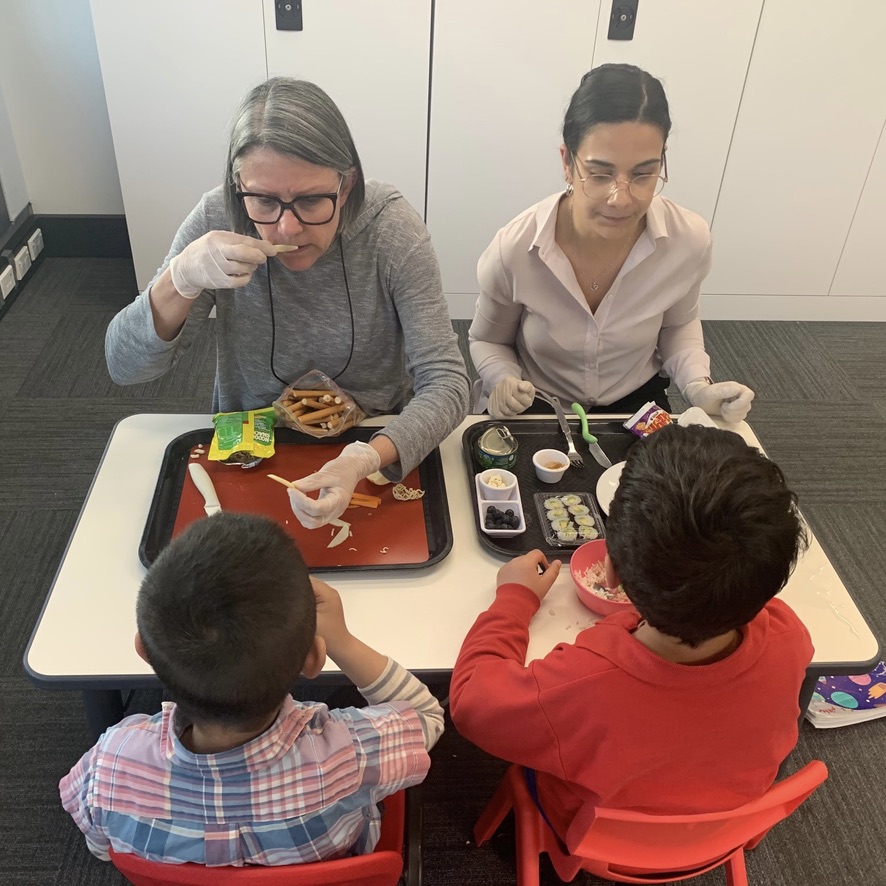
Why Children with Autism Don’t Eat the Food at Their Childcare Centre: Insights from Therapists in Bondi Junction and Mascot
For many parents of children with autism, ensuring balanced eating is a big challenge. Childcare centres, in particular, can make mealtimes stressful. Children with autism often face sensory and social hurdles around food. By understanding these, parents, caregivers, and therapists can help create supportive eating strategies. Here’s why children with autism might avoid food at childcare and how OneOnOne Children’s Therapy in Bondi Junction and Mascot can help.
Sensory Sensitivities Impact Food Choices
Children with autism often experience intense sensory sensitivities. Textures, smells, and appearances of food can feel overwhelming. For instance, a child might find a carrot’s crunch too harsh, or mashed potatoes too soft, and may refuse them.
Supportive Tips from Our Therapists:
- Introduce New Textures Slowly: Start with small amounts, then gradually increase as comfort grows.
- Offer Different Forms: If raw carrots are too much, try cooked carrots or thin carrot sticks instead.
Limited Food Preferences and Routine
Many children with autism prefer just a few foods. This can be due to sensory preferences and a need for routine. Familiarity with certain foods can bring a sense of control.
What Our Speech Pathologists Suggest:
- Respect Preferences: Offer new foods but keep familiar options available.
- Small Changes Help: Introduce foods similar to their favourites. For instance, add a tiny amount of sauce if they like plain pasta.
Predictable Routines Aid Mealtime Success
Children with autism thrive on routine, and childcare centres may disrupt their familiar eating habits with varied menus. This can cause stress and food refusal.
Advice from Our Therapists in Bondi Junction and Mascot:
- Create Visual Schedules: Use pictures or charts to show meals in advance. This helps ease anxiety.
- Consistent Mealtimes: Serve meals at the same time each day to add predictability.
Anxiety in Noisy, Busy Eating Environments
Childcare centres can be busy and loud, making it hard for children with autism to focus on eating. This can lead to anxiety and reluctance to eat.
What our Occupational Therapists recommend:
- Quiet Spaces for Eating: Where possible, provide a quieter area to reduce overstimulation.
- Add Calm to Mealtime: Soothing music or a weighted blanket can help children feel calmer.
Communication Challenges
Communication issues may prevent children with autism from sharing what they like or dislike about foods. This can create added frustration at mealtime.
What We Recommend:
- Use Visual Supports: Picture cards can help children communicate food choices.
- Watch for Body Language: Body language may reveal if they are uncomfortable with certain foods.
Unfamiliar Foods in New Settings
Children with autism may avoid new foods or environments, as these can feel intimidating.
Gradual Approaches from Our Team:
- Try New Foods at Home First: Trying foods in a familiar space, like home, can make a difference.
- Pair New with Familiar: Introduce new foods alongside familiar ones to make them less daunting.
Contact OneOnOne Children’s Therapy for Support
If your child is struggling with fussy eating or food refusal at childcare, we can help. OneOnOne Children’s Therapy in Bondi Junction and Mascot offers expert Speech Pathology and Occupational Therapy. Our therapists work with children with autism, providing strategies to create healthy eating habits in a comfortable environment.
Contact Our Clinics Today:
Bondi Junction Clinic: (02) 8065 7837
Mascot Clinic: (02) 8065 7837
Let us support you in building a positive mealtime routine tailored to your child’s needs. Reach out to book an appointment or to learn more about our services for children with autism in Bondi Junction and Mascot.

Your blog is a breath of fresh air in the often stagnant world of online content. Your thoughtful analysis and insightful commentary never fail to leave a lasting impression. Thank you for sharing your wisdom with us.
Your writing is a true testament to your expertise and dedication to your craft. I’m continually impressed by the depth of your knowledge and the clarity of your explanations. Keep up the phenomenal work!
Back Magazin very informative articles or reviews at this time.
Blue Techker I like the efforts you have put in this, regards for all the great content.
Noodlemagazine This is really interesting, You’re a very skilled blogger. I’ve joined your feed and look forward to seeking more of your magnificent post. Also, I’ve shared your site in my social networks!
Noodlemagazine Very well presented. Every quote was awesome and thanks for sharing the content. Keep sharing and keep motivating others.
Noodlemagazine Incredibly informative articles and reviews at the moment
Some truly interesting info , well written and broadly user friendly.
May I just say what a relief to uncover an individual who genuinely knows what they are talking about on the net. You actually know how to bring a problem to light and make it important. A lot more people need to look at this and understand this side of your story. It’s surprising you are not more popular because you surely have the gift.
Your blog stands out in a sea of generic and formulaic content Your unique voice and perspective are what keep me coming back for more
Gracias por la informacion. muy recomendable! Gracias!!
Appreciating the commitment you put into your blog and detailed information you offer. It’s good to come across a blog every once in a while that isn’t the same outdated rehashed information. Wonderful read! I’ve saved your site and I’m including your RSS feeds to my Google account.